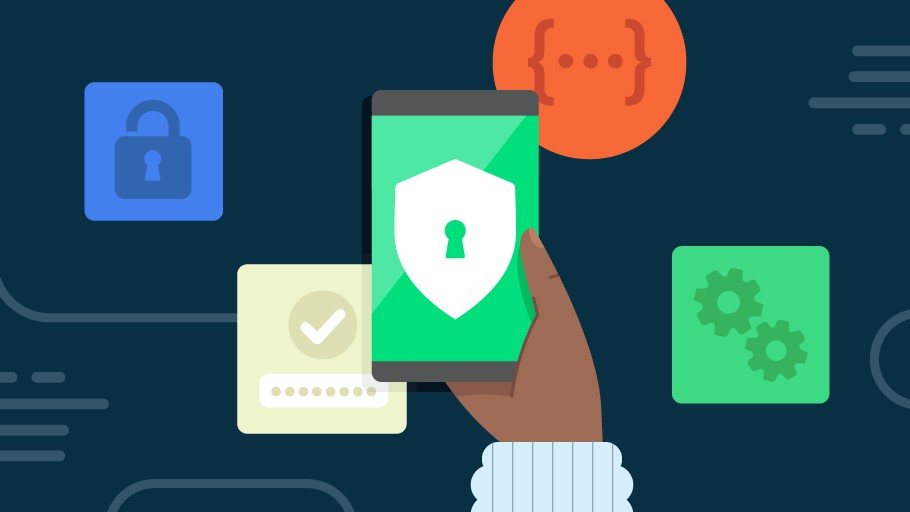Over 2 million Android users have installed these malicious apps — delete them now
System utility and optimizer apps have been found spreading malware and adware on the Play Store

Another bad batch of Android apps used for phishing, as well as spreading malware and adware, have been discovered on the Google Play Store.
As reported by Bleeping Computer and first discovered by the antivirus firm Dr. Web, these apps pose as system utilities and optimizers in order to trick unsuspecting users into downloading them.
We’ve seen this in the past with other malicious apps on the Play Store and cybercriminals will likely continue to use unnecessary system utilities as a lure to infect Android devices with malware and other viruses.
Delete these apps now
Fortunately, all of the malicious apps below have since been removed from the Play Store by Google. However, if you still have any of them installed on your Android tablet or smartphone, you need to delete them immediately to avoid falling victim to any threats they may pose to your devices and your data.
- Bluetooth device auto connect - 1,000,000 downloads
- Bluetooth & Wi-Fi & USB driver - 100,000 downloads
- Volume, Music Equalizer - 50,000 downloads
- Fast Cleaner & Cooling Master - 500 downloads
In a statement to Tom's Guide, a Google spokesperson provided further insight into the apps in question, saying:
"All of the apps identified in the report have been removed from Google Play. We take security and privacy seriously, and when we find apps that violate our policies, we take action."
Posing as system utilities and optimizers
Of the malicious apps discovered by Dr. Web and covered in its new report, TubeBox had the most downloads at over one million. While the app promises to reward users for watching videos and ads, it never actually pays out.
Get instant access to breaking news, the hottest reviews, great deals and helpful tips.
Even if a user collected the necessary amount of coins within the app, a number of errors and problems reported by TubeBox would prevent them from receiving any rewards. Dr. Web’s security researchers believe the app’s creators designed it this way so that users would continue watching videos and ads to earn money for them but not themselves.
Meanwhile, Bluetooth & Wi-Fi & USB driver, Volume, Music Equalizer and Fast Cleaner & Cooling Master received commands that told the apps to load specific websites in order to generate fake ad impressions. Of these adware apps, Fast Cleaner & Cooling Master stands out as the cyber criminals behind it could also use an infected device as a proxy server through which they could channel their own traffic.
Dr. Web also found six different Russian loan apps that promised quick money for users but actually took them to phishing sites where their personal information was collected and then potentially sold on the dark web.
How to stay safe from malicious apps

In order to protect yourself from malicious apps on the Play Store and other official app stores, you want to ensure that Google Play Protect is enabled and running on your Android devices. This free app from Google scans every new app you download for malware but it also looks at the apps you already have installed. However, you can also use one of the best Android antivirus apps for additional protection.
As bad apps do manage to slip past Google’s defenses from time to time, you should also scrutinize any new app before you download it. After taking a look at the app’s listing page for negative reviews, you should also look for external reviews and even video reviews to ensure the app really does what it claims. You can dive even deeper by taking a look at an app’s privacy policy as well as by visiting the developer’s site to see if it’s legitimate.
At the end of the day though, the easiest way to stay safe from malicious apps is by limiting the number of apps installed on your devices. Before installing any new app, you should always ask yourself if you really need it. The feature or functionality you may be looking for might already be built into your device or available in one of the stock apps that ship with the best Android phones. The less apps you have, the lower your chances are of falling victim to a malware infection or having your data stolen.
The Lensa app is going viral with its AI selfies. And we just tried it out.

Anthony Spadafora is the managing editor for security and home office furniture at Tom’s Guide where he covers everything from data breaches to password managers and the best way to cover your whole home or business with Wi-Fi. He also reviews standing desks, office chairs and other home office accessories with a penchant for building desk setups. Before joining the team, Anthony wrote for ITProPortal while living in Korea and later for TechRadar Pro after moving back to the US. Based in Houston, Texas, when he’s not writing Anthony can be found tinkering with PCs and game consoles, managing cables and upgrading his smart home.
 Club Benefits
Club Benefits






